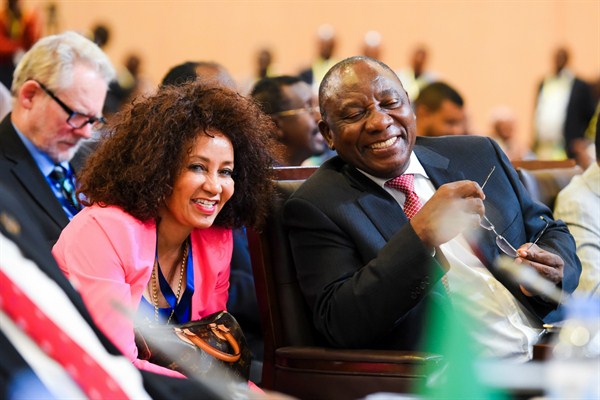Last week, during a press conference in Abuja, Nigerian President Muhammadu Buhari said he would “soon sign” the agreement creating the African Continental Free Trade Area, or ACFTA. His vow came nearly four months after the agreement was unveiled, and Buhari offered an unusual explanation for the delay. “I am a slow reader, maybe because I was an ex-soldier,” he said. “I didn’t read it fast enough before my officials saw that it was all right for signature.”
That may well be true. But it’s also true that Buhari had come under pressure from the man standing next to him at the press conference: South African President Cyril Ramaphosa. Nigeria and South Africa, the continent’s two largest economies, were conspicuously absent from the list of countries that joined the free-trade deal when it was first announced, raising questions about how meaningful it would be. Ramaphosa, though, signed on earlier this month, and he was publicly lobbying Buhari to do the same, a development that would put any questions about the deal’s significance to rest.
Buhari’s comments on trade represented the most tangible piece of news to come out of the meeting between the two leaders—the first since Ramaphosa took office in February following the resignation of Jacob Zuma. Yet there were signs that it could be just one part of a larger story: that of a genuine rapprochement between Nigeria and South Africa. The implications of this, for the two countries and the continent at large, would extend well beyond economic integration.

